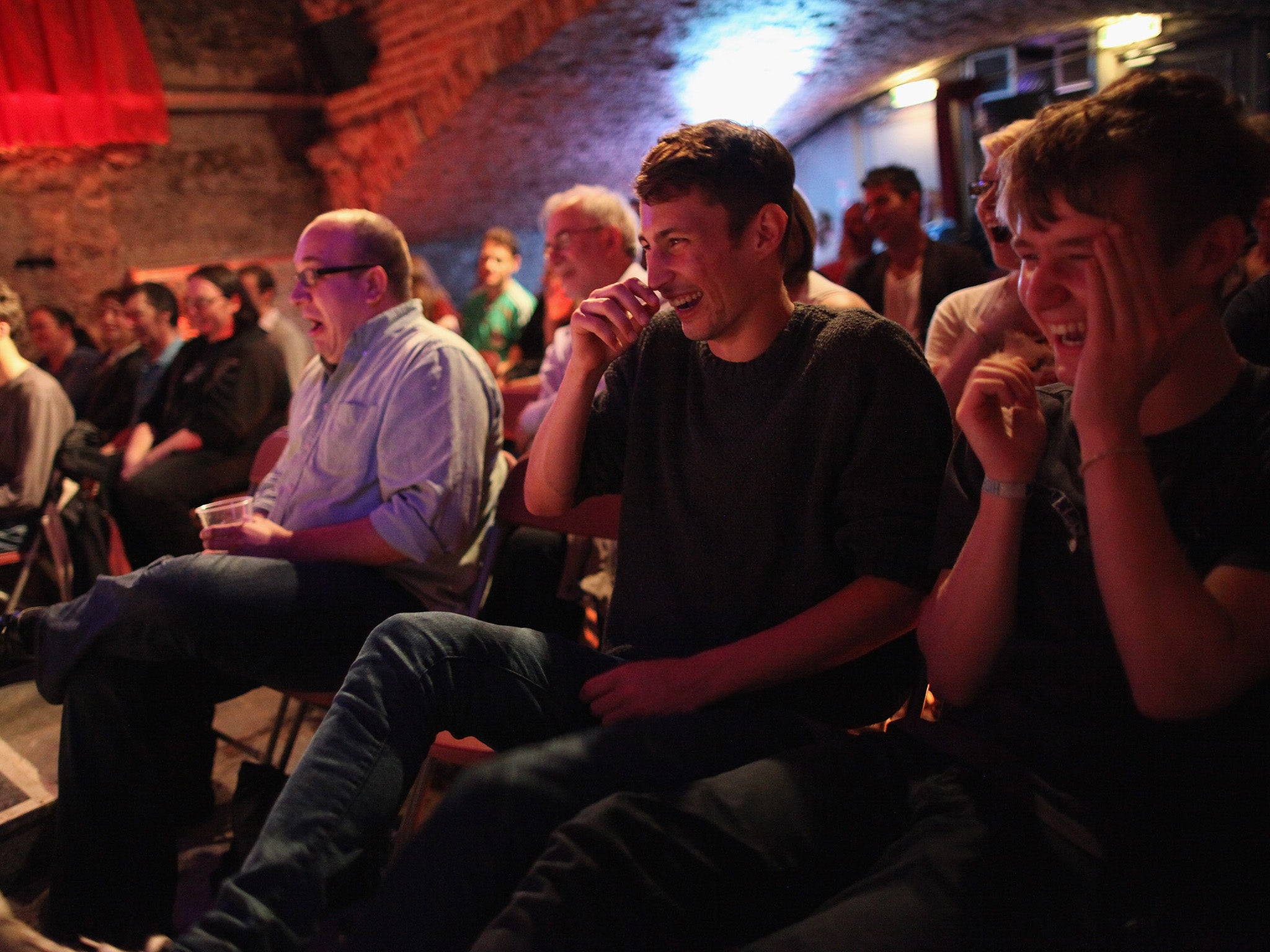Scrap comedy 'safe spaces'. Satire keeps us honest
In recent years it seems that an idea has gained traction in left-wing circles – and especially in universities – that nobody should risk making you feel too uncomfortable or challenge your notions of identity and social justice without treading exceptionally carefully


This week, the Russian-born comedian Konstantin Kisin has been at the centre of a vaguely heated Twitter spat. Admittedly that might have passed you by if you aren’t fully absorbed in the netherworld of vaguely heated Twitter spats, but thankfully it’s been a quiet news week, so I’ve managed to stay abreast of things.
The flare-up related to an unpaid charity gig organised by a student society of a London university that Kisin had been asked to perform at, in particular a “behavioural agreement form” that he was asked to sign beforehand. This stipulated that certain topics and approaches were off limits, including sexism, racism and homophobia, as well as anti-religious and anti-atheist material.
Kisin didn’t sign. He said: “I didn’t turn down this gig because I’m some racist, homophobic, xenophobic, ableist comedian. I turned down this gig because if you sign a contract like that, you’re exposing yourself to someone’s bad interpretation. If someone writes a contract like that, the chances are that they will be hypersensitive, vigilant and trying to catch you out. I’m just not interested in that.”
Having been raised in the Soviet Union, Kisin might be more sensitive than many people to any perceived threat to artistic freedoms. As the daughter of a satirist who fell foul of the theocratic Iranian regime with pretty serious consequences 40 years ago, I can see his point.
Needless to say, you could go too far in making comparisons between student unions run by overenthusiastic 20-year-olds and murderous totalitarian states, but that doesn’t mean that this is unimportant. In recent years it seems that an idea has gained traction in left-wing circles – and especially in universities – that nobody should risk making you feel too uncomfortable or challenge your notions of identity and social justice without treading exceptionally carefully.
With the best will in the world, that’s pretty difficult to reconcile with open and spirited social discourse, never mind satire. When it affects the booking policies of organisations with responsibility for cultural programming in places of education, it worries me. Do we really think that we’ve had as many conversations as we need to about social justice and can put these issues to bed? And if not, shouldn’t we, at the very least, stay open to the possibility of having the mickey taken out of us? After all, your convictions can’t really be that sturdy if they’re threatened by a satirist or a comedian.
There are broadly two things that can happen when a cherished viewpoint comes under attack from satire. If the audience thinks that the satirist has a point, they might change their position accordingly. If, on the other hand, the audience is unpersuaded by the implied criticism, then their convictions are strengthened by the process of refuting it. I don’t think that either of those outcomes is something to fear or avoid.
Satire is often seen as a left-wing art form, and not without reason: it relies on attacking or undercutting the status quo, while conservatism is – in theory, at least – all about preservation and stability, notwithstanding its ongoing and undeniable expansion to include throttling the life out of a country in the hope of controlling its barely reanimated corpse. Still, perhaps the prime minister hasn’t read the Wikipedia article as recently as I have.
In reality, satire in this country also has deep roots on the right: the magazine Punch, for all its links to social reformers, spent the second half of the 19th century satirising politics and society from a conservative perspective. Others who aren’t openly politically affiliated one way or the other – such as Viz magazine, a longstanding favourite of mine – have managed to satirise the precepts of the left as well as the right.
They’re able to do that largely because, despite the right-wing slant of our national politics, our cultural status quo is still very left-wing. Creatives and performers in the arts are overwhelmingly on the left, and so are our audiences. That allows microclimates to come about – on social media, in universities, where the shared assumptions and behavioural norms are dominated by left-wing values. If these microclimates become too closed off to dissenting voices, they can and do harden into echo chambers that are ripe for ridicule.
The parodist behind the social justice-themed Twitter account, Titania McGrath, has delighted in jabbing sticks into the spokes of perceived left-wing logic. To give an example of one of her recent tweets:
“The definition of bigotry is ‘a refusal to tolerate the views of others’. Ergo, if you disagree with me you’re a bigot. #Checkmate”

I enjoy Titania McGrath in the same way that, as a feminist, I enjoyed Millie Tant in Viz. She (or he, or they... who am I to assume eh?) pricks pomposity and tempers moral certitude with a hint of doubt; in short, she keeps us honest. And as a lover of satire, I treasure anyone who can hold a mirror up with wit and intelligence to the more sanctimonious and narrow-minded elements of the left that bother and suffocate people, even me.
Please don’t misunderstand me: as a proud and committed leftie, raised in a socialist nest, I’m not about to have my entire worldview flipped on its head by a few funny one-liners, and I don’t expect anyone else to either. No amount of mockery is going to fundamentally alter my conceptions of compassion and inclusivity.
However, if we’re going to make progress as a society and correct our inevitable missteps, we all have to be able to laugh at ourselves. I sometimes wonder if we might get a little closer to the light if we didn’t keep letting our fragile and unwieldy egos get in the way.
Join our commenting forum
Join thought-provoking conversations, follow other Independent readers and see their replies
Comments
Bookmark popover
Removed from bookmarks